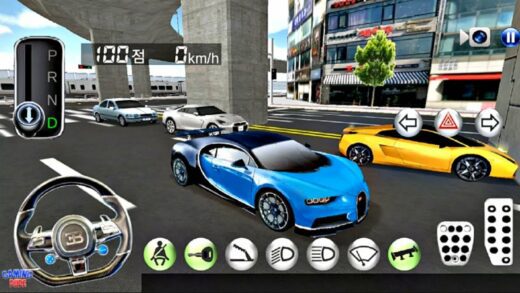In today’s fast-paced digital world, keeping kids engaged with meaningful, brain-boosting activities can be a challenge.
One way to ignite their passion for learning is through science games for curious kids—interactive tools that make complex topics exciting, hands-on, and easy to understand.
From experiments to educational apps, these games blend fun with facts, encouraging children to explore the wonders of science without even realizing they’re learning.
Let’s dive into some of the best science-themed activities and games that stimulate curiosity and support real-world learning.
Why Science Games Matter in Early Learning
Science isn’t just about test tubes and lab coats. It’s about asking questions, solving problems, and discovering how things work. Introducing science through games not only improves academic performance but also fosters critical thinking, creativity, and innovation from a young age.
Research shows that early exposure to STEM (Science, Technology, Engineering, and Mathematics) positively impacts a child’s future career interest and problem-solving skills.
This is why science games for curious kids have become an essential part of many educational curriculums and at-home learning strategies.
Best STEM Games That Spark Curiosity
Whether played on a tablet, board, or hands-on with real materials, STEM games teach kids how to think logically while having fun. Here are some engaging options:
1. Osmo Genius Starter Kit (Ages 5–10)
This award-winning game blends physical objects with digital interactions. Kids solve puzzles, perform math challenges, and conduct mini science activities with the help of an iPad.
Skills Learned: Logic, experimentation, early coding, and physics fundamentals.
2. Crazy Gears
In this app-based puzzle game, kids figure out how gears, levers, pulleys, and other simple machines work. It’s a great introduction to engineering principles.
Bonus: It’s screen-based but hands-on in terms of thinking and planning.
3. Little Alchemy 2
By combining elements like air, water, fire, and earth, kids create hundreds of new items—from clouds to computers. It’s a clever way to teach chemistry and cause-effect logic.
Engaging Educational Science Apps
Many educational science apps are available that encourage independent learning while supporting school curriculums. Here are some parent-approved favorites:
1. Toca Lab: Elements
An exciting introduction to the periodic table for younger learners, this app lets kids experiment with each element in a virtual lab setting.
2. NASA Kids’ Club
This free resource from NASA includes games, quizzes, and videos on space exploration and earth science. Ideal for budding astronauts and space enthusiasts!
3. BrainPOP Jr. Science
With engaging videos, interactive quizzes, and hands-on experiments, this app covers everything from weather and animals to energy and the human body.
Screen-Free Science Activities and DIY Games
Not all science games require a device. Here are a few low-tech ways to spark curiosity:
1. Baking Soda Volcanoes
This classic experiment demonstrates chemical reactions in an unforgettable way. Bonus: Kids love the fizzy eruption!
2. Sink or Float
Fill a tub with water and let kids predict and test which objects will sink or float. It’s a fun way to explore density and buoyancy.
3. Nature Treasure Hunts
Create a checklist of natural items—like leaves, rocks, or bugs—and turn your backyard into a science exploration zone.
How Science Games Build Lifelong Learners
Games designed with a scientific focus promote hands-on problem-solving, teamwork, and inquiry-based thinking.
By consistently engaging with science-related content, children develop a stronger grasp of concepts that may otherwise seem difficult in traditional settings.
Moreover, these games can build confidence and independence in young learners—an essential foundation for success in school and life.
Recommendation
Best Educational Games for Siblings to Play and Learn Together
Best Puzzle Board Games for Kids That Build Brain Power
Games That Teach Kids Responsibility in a Fun Way
Best Music Games for Kids Aged 2–6 to Explore Sound and Rhythm
10 Screen-Free Group Games Kids Will Love Playing Together
FAQs
Q1: What age is best to introduce science games
A1: Children as young as 3 years old can benefit from age-appropriate science games. Start with sensory-based activities and progress to more structured STEM games by age 5 or 6.
Q2: Are science apps safe for young kids?
A2: Yes, many educational science apps are designed with kid-friendly interfaces and ad-free environments. Always review app content and use parental controls when available.
Q3: Can screen-free science games be just as effective?
A3: Absolutely. Hands-on, screen-free activities such as experiments, nature walks, and physical puzzles often enhance sensory learning and real-world connections.
Q4: How can I encourage my child to love science?
A4: Incorporate fun experiments, games, and field trips. Make science a part of everyday life—ask questions, observe nature, and let curiosity lead.
Q5: Do science games align with school standards?
A5: Most STEM-based and educational science apps are aligned with Common Core or NGSS (Next Generation Science Standards), supporting what kids learn in school.
Final Thoughts
Encouraging your child’s natural curiosity through science games for curious kids is one of the most effective and enjoyable ways to build a foundation for lifelong learning.
These games go beyond entertainment—they foster essential cognitive skills like problem-solving, critical thinking, and creativity.
Whether you choose screen-based educational science apps, hands-on experiments, or STEM games, the key is to make science feel exciting and accessible.
By integrating science play into your child’s daily routine, you’re not just helping them understand the world—they’re learning how to question, explore, and innovate.
That’s the true power of playful learning: it lights a spark that continues to grow, inspiring the next generation of thinkers, doers, and discoverers.



